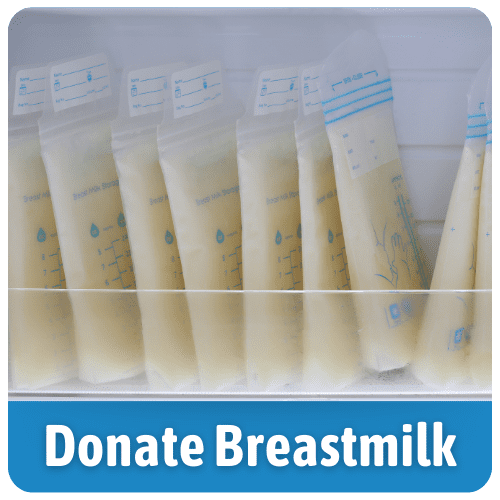
Do you have extra breast milk? Did you know you can donate that milk to help nourish premature and at-risk babies in our local hospitals? The Milk Depot at Capital Area Healthy Start serves as a safe, controlled milk collection point.
Every drop of breast milk makes a difference. By donating your breast milk, you can help another family in need and make a positive impact on a baby for a lifetime, please consider donating your extra milk!
Please call (850) 488-0288 to set up an appointment for dropping off milk.
The depot location for the Greater Big Bend Area is 1311 N. Paul Russell Rd. Suite A-101, Tallahassee, FL 32301.
Frequently Asked Questions
A milk depot is a convenient location that local moms can use to drop off their excess milk. The milk depot facilitates the donation process of receiving milk, packing milk, and sending it to the main milk bank. The main milk bank is responsible for screening all donors and distributing the donor milk.
By donating your breast milk, you can help another family in need. Mothers of premature infants often struggle to produce adequate breastmilk for a variety of reasons. For these families, donor human milk is a welcomed gift during one of the most stressful times of their lives.
Donor human milk (DHM) from the Mothers’ Milk Bank of Florida is dispensed by prescription only. The highest-priority recipients are premature and ill hospitalized infants. Common reasons for prescribing donor milk include: Preterm birth, Failure to thrive, Malabsorption syndromes, Allergies, Feeding/formula intolerance, Immunologic deficiencies, Post-operative nutrition, and Infectious diseases.
To donate breast milk, you will need to first become a registered donor. To become a registered donor, please follow the instructions below:
-
- Call the Mother’s Milk Bank of Florida at 407-248-5050.
- Complete a short phone pre-screening.
- Fill out the comprehensive screening form.
- Have your blood drawn for testing. The cost of all the testing is covered by the milk bank.
- Sign the donor consent form. Have your doctor and your baby’s pediatrician sign the medical release forms.
- Drop off your milk at Capital Area Healthy Start Coalition’s Milk Depot ─- 1311 N. Paul Russell Rd. Suite A-101, Tallahassee, FL 32301.
- That is all there is to it. There is no cost to you. Your time pumping your milk for donation is greatly appreciated and a huge gift to tiny babies at risk.
You are a lifesaver – Thank you for supporting nonprofit milk banks!
